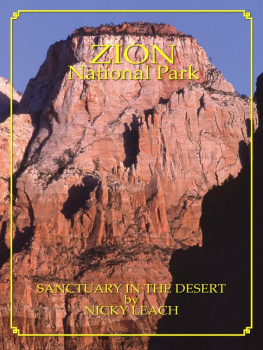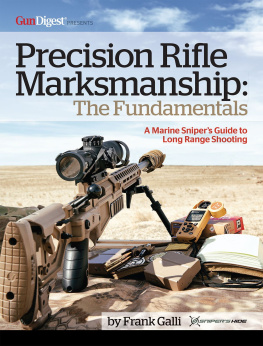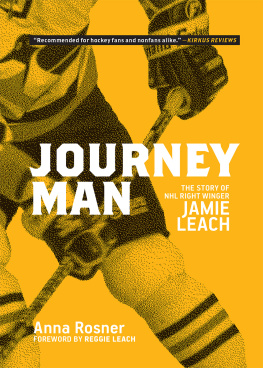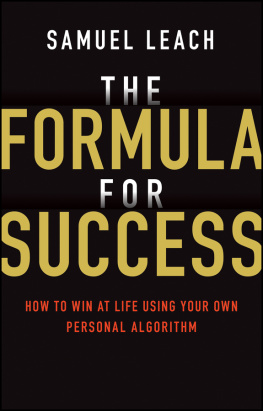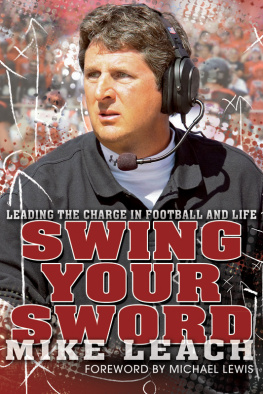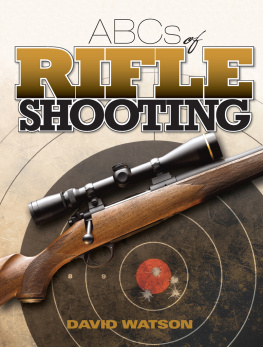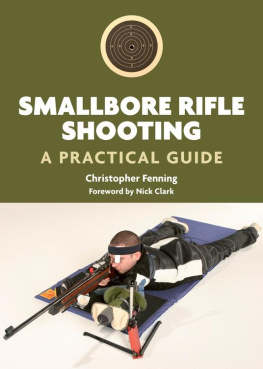Reggie Leachs Statistics
Season | Team | Games Played | Goals | Assists | Points | Awards
& Championships |
197071 | Boston Bruins | | | | |
197172 | Boston Bruins/
California Golden Seals | | | | |
197273 | California Golden Seals | | | | |
197374 | California Golden Seals | | | | |
197475 | Philadelphia Flyers | | | | | Stanley Cup |
197576 | Philadelphia Flyers | | | | | Conn Smythe Trophy
All-Star Game (76) |
197677 | Philadelphia Flyers | | | | |
197778 | Philadelphia Flyers | | | | |
197879 | Philadelphia Flyers | | | | |
197980 | Philadelphia Flyers | | | | | All-Star Game (80) |
198081 | Philadelphia Flyers | | | | |
198182 | Philadelphia Flyers | | | | |
198283 | Detroit Red Wings | | | | |
The
Riverton
Rifle
Straight Shooting on Hockey and on Life
My Story
Reggie Leach
with Randi Druzin
Foreword by Bobby Clarke
Copyright 2015 by Reggie Leach
Foreword copyright 2015 by Bobby Clarke
All rights reserved. No part of this book may be reproduced, stored in a retrieval system or transmitted, in any form or by any means, without the prior written consent of the publisher or a licence from The Canadian Copyright Licensing Agency (Access Copyright). For a copyright license, visit accesscopyright.ca or call toll free to 1-800-893-5777.
Greystone Books Ltd.
greystonebooks.com
Cataloguing data available from Library and Archives Canada
ISBN 978-1-77164-137-1 (cloth)
ISBN 978-1-77164-138-8 (epub)
Editing by Jennifer Croll
Proofreading by Stephanie Fysh
Cover design by Peter Cocking
Text design by Nayeli Jimenez
Photographs provided by Reggie Leach
We gratefully acknowledge the financial support of the Canada Council for the Arts, the British Columbia Arts Council, the Province of British Columbia through the Book Publishing Tax Credit, and the Government of Canada through the Canada Book Fund for our publishing activities.
For my grandchildren, Jaden, Hunter, and Jaxon: youre the future, and the reason why I wrote this book.
And for all the young people who struggle in life: I hope my story can help you make good choices and overcome the challenges that may come your way.
Foreword
BY BOBBY CLARKE
I MET REGGIE IN the summer of 1966, a few weeks before the start of the Flin Flon Bombers training camp. When I walked into the Whitney Forum that day, I saw a big kid standing on the concrete in the middle of the rink firing pucks at the net. We chatted for a few minutes and hit it off right away. We became fast friends and by the time our rookie season was a few months old, we were inseparable.
We jelled as linemates, too. I would feed him in the puck in the slot, knowing that he would unleash a killer shot. It was powerful and accurate enough to terrify goalies, first in Junior A and then in the NHL . He was stronger and faster than most of us, but it wasnt his natural gifts alone that accounted for his phenomenal success as a goal-scorer. Reggie spent hours on end working on his shot.
He showed that same determination in rebuilding his life after alcohol almost destroyed it. He went to rehab and, though he faced some big challenges in the years that followed, he never once turned to alcohol to help him cope. Instead, he built a successful landscaping business, strengthened ties to family members and friends, and formed new relationships. He also dedicated himself to helping others and to improving the lives of First Nations people. His rebirth is truly inspirational. Reggie impresses me more now than he ever has. Im proud to call him my former teammate, my friend, and even my brother.
MOST PEOPLE KNOW me from my playing days in Philadelphia, when the Broad Street Bullies ruled the NHL with iron fists, but my life story starts a few decades earlier and almost two thousand miles northwest, on the windswept Canadian Prairies.
My biological parents met in Winnipeg in 1949. Archie Leach, who was twenty-two when I was born, was just starting out as a blaster in mining and construction and his work took him to remote regions in the Northhe went wherever he could find contracts. Jessie Ackabee, then twenty-one, was from the Eagle Lake First Nation, an Ojibwe community in Northwestern Ontario. She lived in rooming house in Winnipeg with Archies sister, Edna, who was only nineteen.
The one small room where the two young ladies lived had no furniture aside from a cot, a sofa bed, and a tiny wooden table with two chairs. They shared a dingy bathroom with the rest of the buildings residents.
The room must have seemed even smaller when I came along on April 23rd, 1950. The girls were struggling to make ends meet at the time, and even with Archie sending money whenever he could, they didnt have enough to provide for themselves and me.
Edna suggested they leave me in the care of her parents, who lived in Riverton, a small community seventy miles north of Winnipeg. Jessie was faced with an agonizing decision. She didnt want to part with me, but she knew my paternal grandparents could provide me with a better life, so she agreed to the arrangement. She viewed it as temporary and hoped to be reunited with me down the road, when she was able to care for me.
When I was a few weeks old, Edna bundled me up and we boarded a train to Riverton, where my paternal grandparents would raise me. Edna said I didnt fuss at all and seemed to enjoy the regular swaying of the passenger cara good sign, I guess, for someone who would later spend much of his working life on the road.
RIVERTON WAS A small, bustling community on the western shore of Lake Winnipeg. It was the last stop on the Canadian Pacific rail line extending north from Winnipeg, so it had a steady stream of goods moving in and out of town. Fishermen would arrive with their haul of goldeye and whitefish while gold extracted from the soil sixty miles east across lake Winnipeg was being loaded onto boxcars. Most of the nine hundred people who lived in the community were of Icelandic or Ukrainian descent. There were some First Nation families too.
On the sunny May afternoon that I arrived, my grandfather headed to the train station telling people he was about to pick up a special delivery. He beamed when Edna clambered off the train and handed me to him. Edna noticed some raised eyebrows when she looked around the platform; unwed mothers werent exactly celebrated in those days. But she was a plucky girl and she wasted no time in assuring bystanders that I was not her child. They didnt believe her, but she just shrugged and headed to her parents home to celebrate my arrival. My grandfather was so proud that day, he gave me his nameReginald Joseph Leach.
AFTER COMPLETING MILITARY service in his native England, my grandfather had moved to Canada and found work at Favourable Lake Mine in Northern Ontario. That is where he met Kate McKay, who had grown up on the Berens River First Nation, a small Ojibwe community accessible only by boat on the eastern shore of Lake Winnipeg. Kate and my grandfather Reginald were likely introduced by my great-uncle, Brother Frederick Leach, who served at the Catholic Mission in Berens River and wrote a book titled 60 Years with Indians and Settlers on Lake Winnipeg . He loved living among the Ojibwe and Saulteax people of the region and became an advocate for their way of living. I remember meeting him once as a child when he visited my grandfather.


